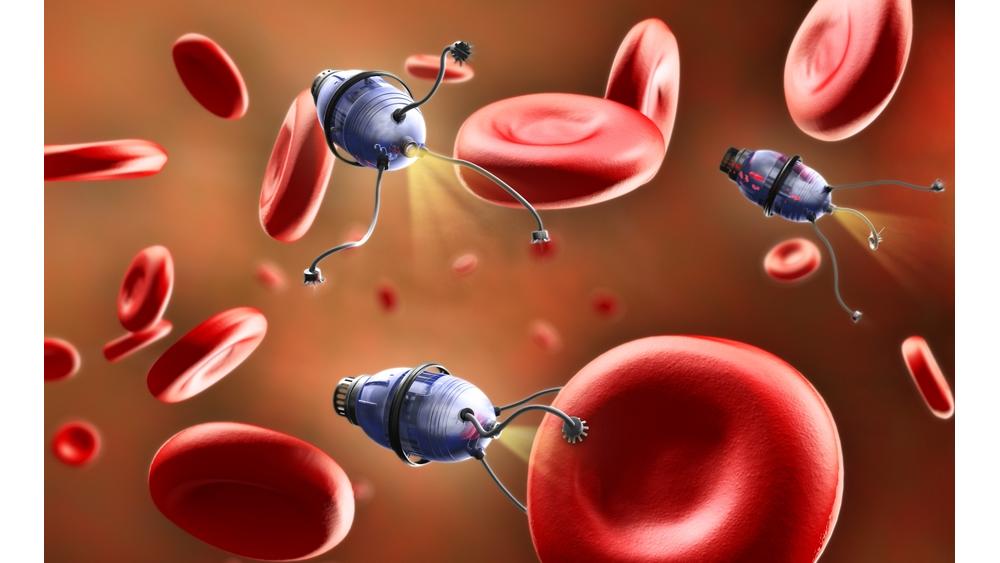The new technology, called Bacteriobots, has the potential to treat deadly cancer diseases without the side effects of chemotherapy.
A South Korean research team, led by Jong-Oh Park, at the Chonnam National University created the world’s first nanorobots that can treat cancer.
This new approach, called bacteriobots, offers an opportunity to overcome the previously limited ways to treat cancer.
Chemotherapy, the most commonly used conventional approach in cancer treatment, is an effective therapy against actively proliferating tumour cells.
However, chemotherapy also produces many undesirable side effects such as damaging otherwise healthy fast-growing normal cells such as blood and hair cells.
One of the most difficult challenges faced by cancer research is inventing a new drug delivery approach that identifies and targets only the tumour cells without affecting the normal cells.
Scientists have been experimenting with various biodegradable and biocompatible materials which can specifically deliver optimal amounts of drug molecules to tumour cells for many years.
While many drug delivery systems have been proposed and experimented with, the nanorobots by the Chonnam National University is perhaps the first system that’s been successfully tested in the mice and can possibly be replicated in the humans.
The South Korean team used genetically modified non-toxic S. typhimurium bacteria to detect certain proteins, such as vascular endothelial growth factor, secreted excessively by cancer cells.
Then they attached a polystyrene microbead to the bacteria, effectively turning them into microrobots, to deliver robotic devices, 3 micrometers in size, that spray anticancer drug molecules onto cancer cells.
The team chose S. typhimurium bacteria for their tendency to accumulate in hypoxic tumours in the living organisms. They also have high motility and circulate faster in the body which helps to deliver treatment to the tumour sites much faster.
“First of all, the main feature of Bacteriobot is that the robot has a sensing function to diagnose the cancer, and it’s attacking the cancer itself as it uses the bacteria’s brain while moving toward the tumour region with its flagella,”
said Jong-Oh Park, the director of Robot Research Initiative at Chonnam National University, in an interview to the Reuters.
“Our medical nanorobot has very high efficiency as an anti-cancer treatment by selectively attacking cancer cells,” said Park. “In this regard, we have introduced a new paradigm in treating cancer, and I think the technology will further invigorate anti-cancer treatment.”
Park’s new approach is revolutionary because it uses modified attenuated bacteria as microsensor and microactuator to deliver microstructure drug molecules to tumour cells.
This overcomes many challenges faced by still-nascent nanotechnology industry in manufacturing a completely artificial micro/nano electro-mechanical system (MEMS/NEMS) that includes both sensing and therapeutic functions.
However, currently the bacertiobots can only detect solid cancers such as colorectal and breast tumour cells but the technology can be developed further to treat other deadly cancer diseases such as leukaemia.
The new technology has been patented in about dozen countries, including the United States, Japan and various European Union states, and clinical trials in humans may begin within two years.
Log in or register for FREE for full access to ALL site features
As a member of the nuviun community, you can benefit from:
- 24/7 unlimited access to the content library
- Full access to the company and people directories
- Unlimited discussion and commenting privileges
- Your own searchable professional profile


.jpg)


.jpg)





.jpg)
